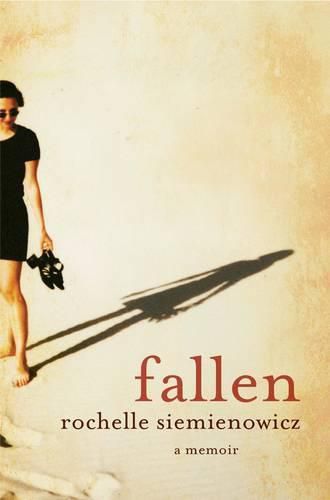Rochelle Siemienowicz on turning 20 and reading Praise
In 1992 I turned 20 and got married. Raised as a strict Seventh-day Adventist (a boutique form of evangelical Christianity), I believed that the end of the world was near and that sex before marriage was a terrible sin. My boyfriend and I had fallen passionately in love at church, and we knew we had to get married quickly if we wanted to stay ‘good’. So we had our white wedding in the middle of winter during University’s mid-semester break. But we didn’t stay good. We left the church, lost our religion and started tasting all those things forbidden to us in our teens: meat, alcohol, R-rated movies and scandalous books by authors who didn’t believe in God. As part of our adventure, we embarked upon an open marriage – the last, tumultuous three weeks of which I describe in my fictionalised memoir, Fallen.
1992 was also the year in which Andrew McGahan’s Vogel Award-winning semi-autobiographical novel Praise was published. Regarded as one of the first of a series of ‘dirty realist’ Australian novels (a term rejected by most of the authors involved), Praise made a huge impact on my sheltered psyche. Written in a deceptively transparent literary style, the first person narrator, Gordon, is frank and relentlessly confessional. He’s an unemployed, chain-smoking asthmatic in his early twenties, charting a disastrous love affair with Cynthia, an eczema-plagued nymphomaniac with a weakness for drugs and alcohol. Compulsively readable and darkly funny, this best-selling novel (along with its prequel, 1988) utterly seduced and delighted me.
Raised on a literary diet of tame children’s books, Biblical texts and carefully chosen classics (with the odd Mills & Boon romance read under the bedcovers during my teens), I was like a prisoner set free when I went to University and started reading freely at the library. Before then, I didn’t know that books like Praise were possible – anywhere, let alone in Australia. And as I caught up on literature of all kinds, and especially Australian literature – from Patrick White to Helen Garner to Christos Tsiolkas – I started to see that it might be possible for me, even little me, to write a book. It slowly became conceivable that I might write about my own life; a book set in Perth and Melbourne, my own parts of the world, tracing my own particular experience in my own, sometimes bible-inflected, accent.
The Bible, the Bible, it was the first book I ever read and it began my love affair with words. And so I began the story of my rapid fall away from innocence with reference to first woman in the Bible. The first lines of my book are: ‘Call me Eve. Of course it’s not my real name. My good Christian parents would have considered it a curse to give their baby girl the name of that original sinner…’.
I make no claims that my book is anything like Praise. For one thing, McGahan got to call his work a novel while mine, though originally written as fiction, was turned into a memoir on the advice of my publisher. But what I hope my story shares with that one – apart from some explicit sexual content and a certain amount of bad behaviour – is an unashamedly local and candid narrator; a storyteller who says, without apology: ‘This is what it felt like to be me, at that time, in this place.’



